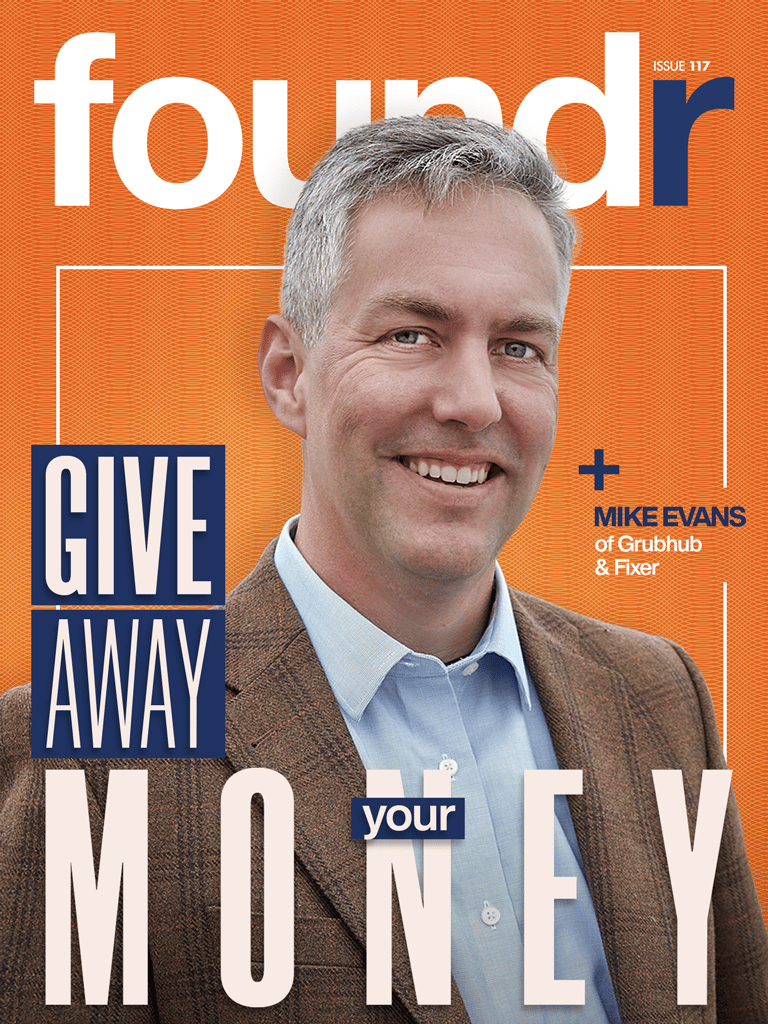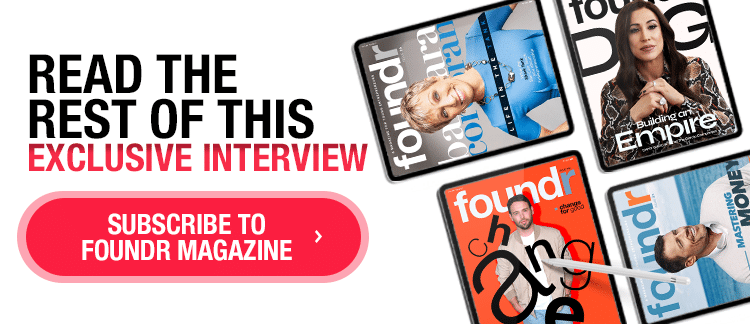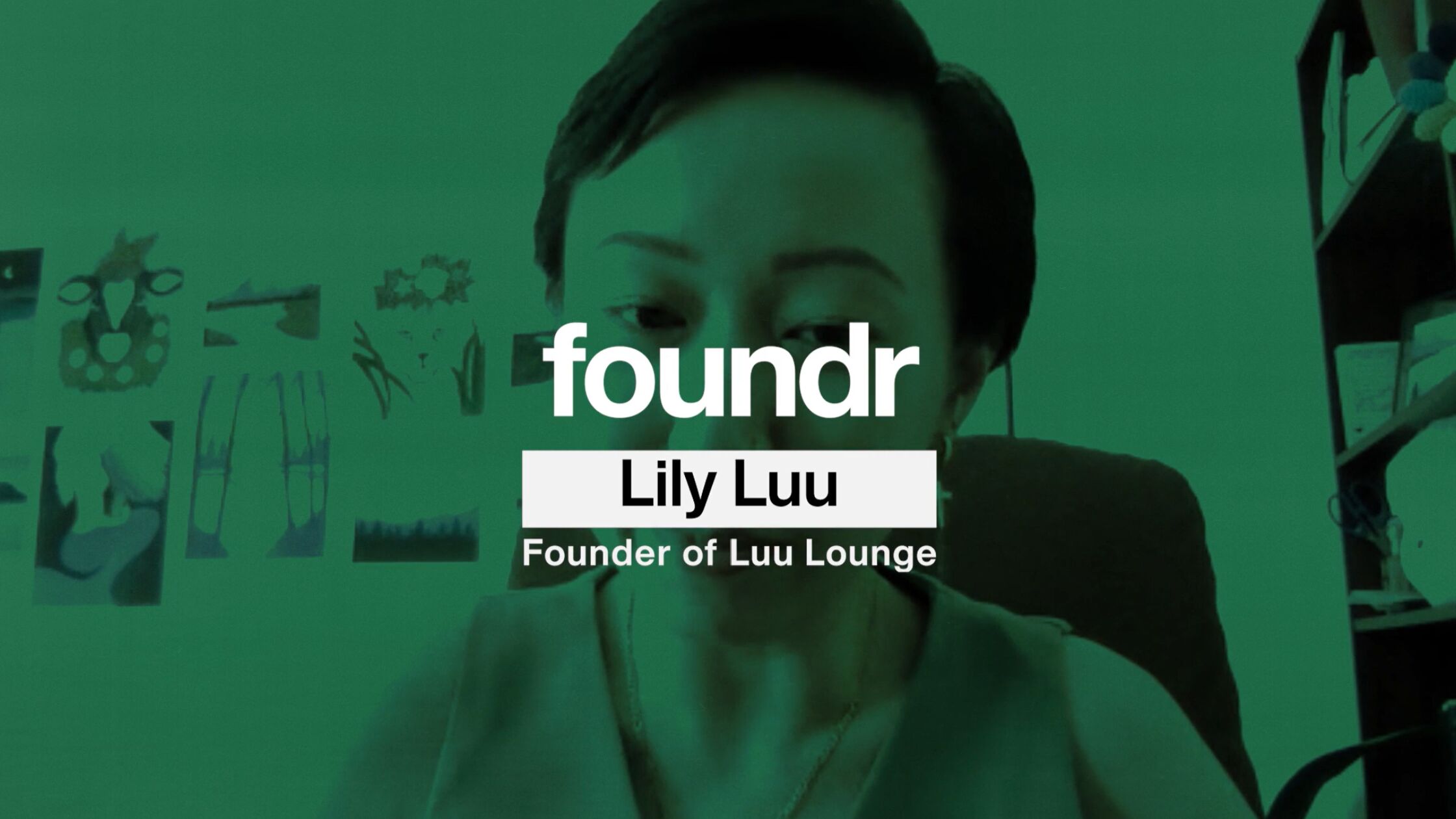Foundr Magazine publishes in-depth interviews with the world’s greatest entrepreneurs. Our articles highlight key takeaways from each month’s cover feature. We talked with Mike Evans, founder of GrubHub and Fixer, about staying humble in the face of success. To read more, subscribe to the magazine.
—————
Mike Evans’s first day at Fixer started at 9am in a coworking space conference room. He was surrounded by three former colleagues who’d all quit their jobs to join him. Evans hadn’t worked in three years. They looked around at each other and said, “How do we do this?”
“I had forgotten just how lost you can feel,” Evans says about launching his second business, Fixer, a “right now” home repair service. “And how hard it is to create something from nothing.”
If you don’t know Mike Evans, you’ve probably used his first business when the craving for takeout hit you on a Saturday night. Evans started GrubHub in 2002 as a hobby and built it into one of the largest food delivery companies in the United States, going public on the stock exchange in 2014.
After exiting GrubHub, Evans took a break until he felt the pull to start a business that could benefit a community and customer base. He found the answer when he couldn’t get a contractor to repair his gutter.
The solution? Fixer.
Evans says his second run at building a business is easier in some ways, but only through the lessons from GrubHub is he able to make Fixer into something from nothing that provides real value to a hungry customer base.
Read more: How Zeb Evans Built ClickUp from Life-Threatening Moments
It’s OK to Quit
Evans’s first goal when he started working full-time on GrubHub was to eventually pay off his school debt, but his goals changed as the business grew.
“One of the things that founders suffer from, just like humanity suffers from, is the inability of sunk-cost thinking,” Evans says.
Evans believes that just because you work on a project or goal for a certain amount of time doesn’t mean you have to feed into the “hustle porn” of entrepreneurship culture.
“There’s a middle ground where you can work quite hard but also are a little bit thoughtful about working smart, and you don’t burn yourself out completely,” Evans says.
He says that entrepreneurs need to be good at quitting to set new goals and change their activities. In essence, give yourself permission to try different things.
“There should be no stigma associated with this idea of quitting something that’s not working for you.”
In 2014, Evans changed his activity by leaving GrubHub. He felt he had taken the business as far as he could, and after going public, it didn’t align with his new goals. Quitting GrubHub led Evans to research the concept of impact investing.
“Can you have a business where the benefit you provide for customers and the social benefit you create for the community in which you operate can’t be divorced, that the two go hand-in-hand?”
Evans found his impact investing opportunity after getting frustrated because he couldn’t find someone to fix his gutters. He wondered why getting someone to do a seemingly simple fix was so hard. He learned that the lack of incoming trade workers and trade schools had shrunk the labor market, while the demand for housing investment following Covid-19 had risen. The result is a labor and skills shortage for small repair professionals.
Fixer aims to fill that gap.
But instead of a two-marketplace business like GrubHub, Fixer hires, trains, and supports full-time employees who provide do-it-all expert repairs. This allows the business better quality control while simultaneously offering people a career pathway and trade education.

A Second Fix
At Fixer, Evans is doubling down on what made his time at GrubHub a success—trusting teams and letting go.
“When you start on your first day, most entrepreneurs own 100 percent of the company and do 100 percent of the work,” Evans says. “From Day Two on, it’s an exercise in decreasing that from 100 percent to something closer to zero.”
He says the key to letting go of control is trust. And trust comes from seeing customers, employees, and partners as people first.
“I’ve learned that I was right about having empathy, and trusting people is the right way to run a business,” Evans says.
“An openhanded, highly autonomous, highly empowering, highly trustful approach is the way to go.”
That’s why Evans spends his days at Fixer figuring out if they have the right people, whether they are working on the right things, and if they have the right resources.
His advice for founders living like his early days at GrubHub, besides having a good bike, is to quickly get a solution to a customer.
“However much you think the product for the customer is the most important thing, you’re wrong—you don’t think it enough,” Evans says. “The product that creates value for the customer is the reason your business exists.”
Evans says that starting a new business is like a blank canvas. And just like an artist, the first brush stroke can be the most intimidating.
“It’s both a creative exercise, it requires a lot of discipline, it requires a lot of effort, it requires a lot of expertise, and there’s no guarantee it’s going to work,” Evans says. “And that all sums up that it’s pretty damn hard.”
On his first day as the founder of Fixer, Evans faced a blank canvas. He looked at his partners and asked, “How do we start a business?”
So they divided tasks between themselves to build a website, find someone who could fix things, and find customers who needed fixes. At the end of the day, they returned to the conference room and had customers ready to sign up.
“It turns out that we did [know how to start one],” Evans says.
How to Be Successful and Not Get Greedy, According to Mike Evans
- Focus on Value: Provide value to your customers above all else.
- Philanthropy: As soon as you make profits, start giving money away quickly.
- Get a Mentor: Find a mentor who can guide you through growth.
- Empathy: See your employees, customers, and partners as people.
- Listen to Your Team: Ask for feedback, listen, and respond.

















